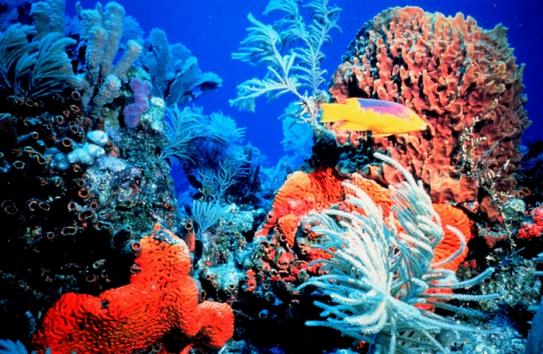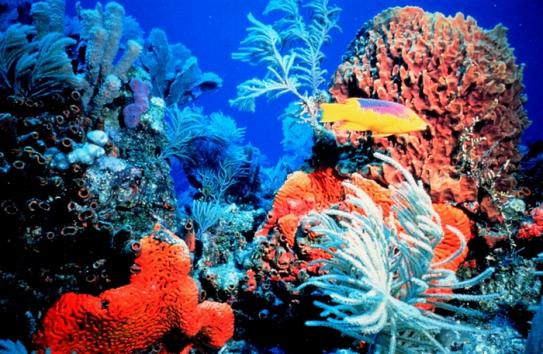Despite their ecological and economic importance, Florida’s coral reefs are teetering on the verge of collapse. Coral coverage in the Keys has diminished from 55 percent in 1975 to less than 5 percent today. What remains is often described as “remnant” or “zombie” reefs because they support so little marine life. Not surprisingly, since 1995, reef-based recreation has dropped more than 20 percent in the region.
The scientific evidence suggests a host of factors have contributed to the decline, chief among them being effluent discharges from municipal storm and wastewater treatment facilities along the coast. Other reports document the physical destruction caused by boat groundings, fishing equipment and recreational divers.
In a bid to protect Florida’s coral resources, the federal government created the Florida Keys National Marine Sanctuary in 1990 and enacted extensive use restrictions in Sanctuary waters. The loss of coral cover has slowed somewhat in these protected areas, but the deterioration of wildlife populations, species diversity and habitat quality persists throughout the region.
The inability of government regulations to reverse the downward trend prompted conservation groups and nongovernmental organizations to develop active coral restoration techniques. One approach involves the use of asexual fragmentation to grow corals in underwater nurseries and then transplant them on wild reefs. Pioneered by Ken Nedimyer of the Coral Restoration Foundation and funded primarily by a federal grant administered by The Nature Conservancy, this technique has proven highly effective at regrowing coral colonies and boosting local biodiversity.
Continuing the labor-intensive nursery and outplanting operations requires secure funding, but the Coral Restoration Foundation’s federal grant expired in 2012. Brett Howell, Georgia Aquarium’s Alex C. Walker Conservation Fellow, has developed a proposal for funding coral restoration while simultaneously addressing the tragedy of the commons dynamic that plagues Florida’s coral reefs.
Howell’s proposal calls for NOAA and the State of Florida, as comanagers of the Florida Keys National Marine Sanctuary, to create exclusive restoration zones inside the Sanctuary where nonprofit and for-profit organizations would invest in active reef restoration projects. Those organizations would be able to recoup their investment in restoration by collecting user fees from reef visitors and recreationists.
With a clear incentive to steward the reefs, these groups could also monitor for and prevent actions that destroy reef resources, such as careless anchoring. The thrust of this idea is to create an ownership interest in the reefs and harness financial incentives for reef restoration.
Florida has a major constituency of recreationists and dive shop operators who have long accessed reefs at little to no cost. Even if market-based restoration were implemented, unrestricted access could still be available in nonrestored areas. In essence, reef recreationists, visitors and their guides would have a choice of whether to visit a restored reef for an additional fee or a degraded, open-access commons for no charge.
The idea of charging user fees for outdoor recreation is a proven concept. In fact, user fees are pervasive throughout the U.S. National Park system, including at Dry Tortugas National Park located approximately 70 miles from Key West, Florida. There, user fees help to fund facility improvements, natural and cultural resource preservation, and interpretation of park resources. Fees also allow visitors to contribute to the stewardship of the natural resources that they so dearly value.
In recognition that current approaches are not achieving the desired level of reef conservation, NOAA is currently considering changes to the Florida Keys National Marine Sanctuary rules and boundaries. User fees combined with donations from nonprofit conservation groups and charitable foundations could eventually reverse the degradation of Florida’s coral reefs.
For more, see “Closing the Coral Commons to Support Reef Restoration in Florida” by Reed Watson and Brett Howell.





